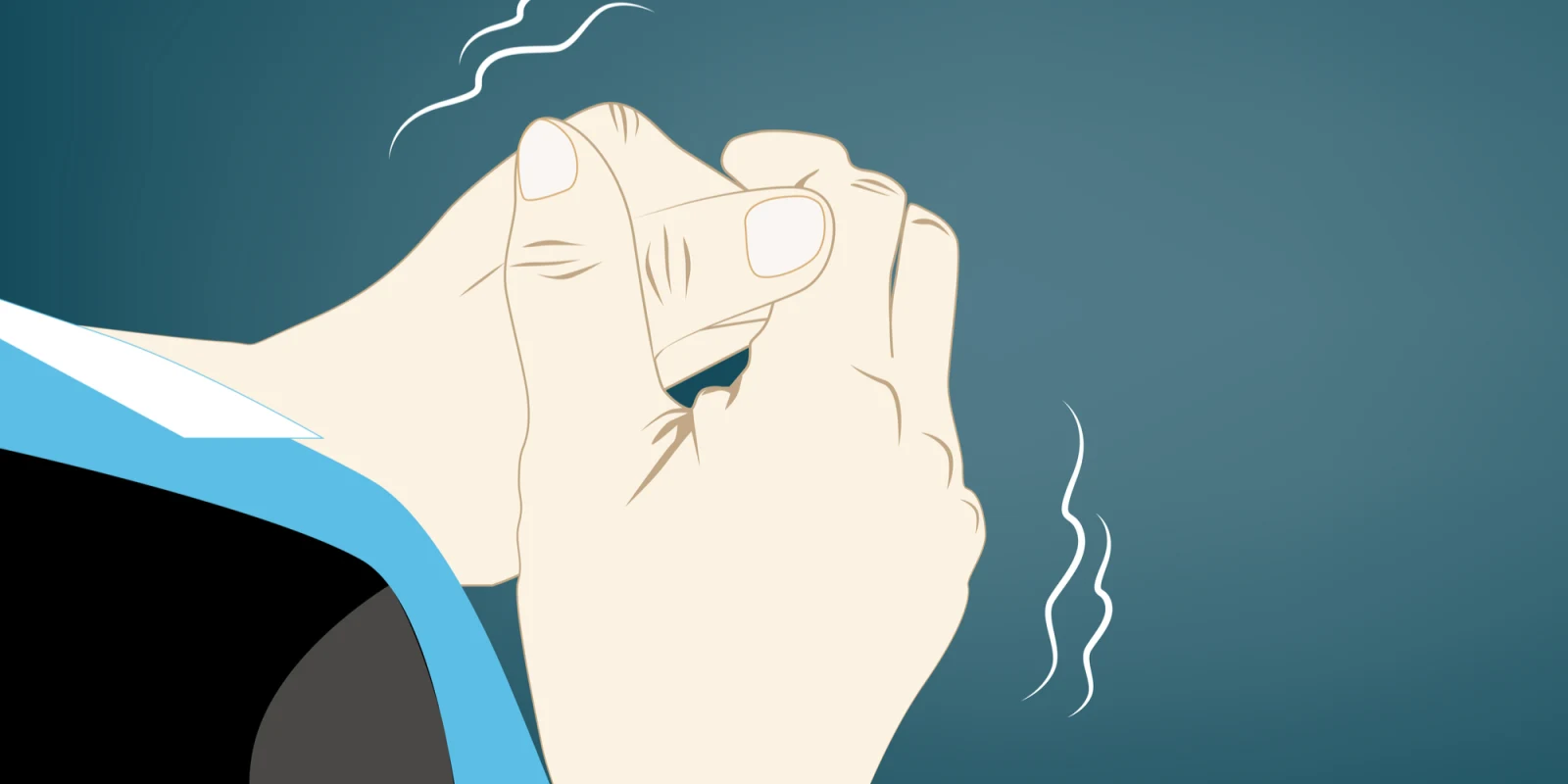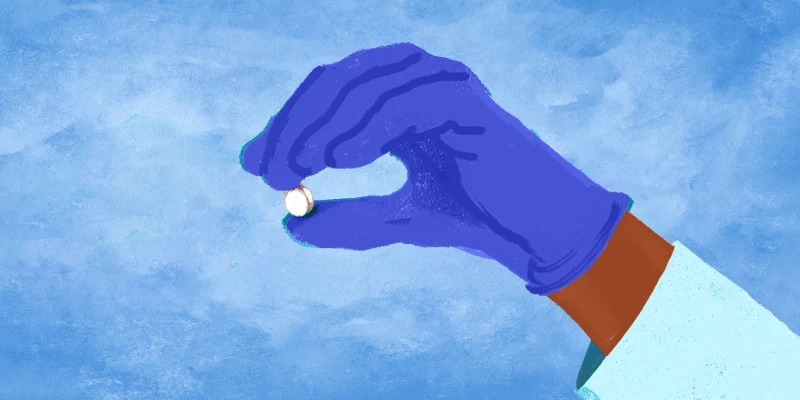
"Alice Woods" is dying of metastatic breast cancer, but she cares little for awareness efforts like pink ribbons and catchy hashtags like #stage4needsmore. You see, an adverse side effect from one of her medications has left Alice with a condition that causes her far more suffering than her terminal cancer. Akathisia has also prevented Alice from receiving adequate cancer treatment and is therefore ending her life prematurely. Her dying wish is to leave the medical community with more awareness about akathisia.
What Is Akathisia?
Akathisia is a movement disorder caused by antipsychotics, antidepressants, or antiemetics medications. It is also experienced as a symptom of withdrawal from medications (including benzodiazepines and gabapentin). It is defined as a subjective feeling of inner restlessness combined with an urge to move. Akathisia is objectively observable as repeated movement (fidgeting, rocking, pacing, etc.). It can be seen with the introduction of a new medication, a dosage increase, or a dosage decrease.
Alice developed chronic akathisia in 2014 after a two-month taper off a long-term Klonopin prescription. She was unprepared for the ensuing withdrawal symptoms, with the worst being akathisia. Alice was compelled to march endlessly and spent many sleepless nights in agony. She felt as if she "had been suddenly transported into hell."
Why Is It So Often Misdiagnosed?
Patients suffering from akathisia are often misdiagnosed or experience a delay in diagnosis. It is all too often dismissed as as anxiety, agitated depression, or restless leg syndrome, instead of the result of an adverse drug reaction. This can result in inappropriate treatment, prolonged suffering, and even death. Many physicians do not consider akathisia in the differential diagnosis, especially in the case of withdrawal from drugs such as benzodiazepines.
Alice called her doctor's office at the onset of symptoms and was told it could not be related to Klonopin because the drug was "out of her system." Instead she was presumed to be mentally ill and was admitted multiple times to psychiatric facilities over the next year. She was given trials of different psychiatric drugs, none of which stopped her relentless need to move. On one particular occasion, she recalls the nurses threatening to tie her down since she couldn't keep still, despite being given large doses of medication. During this time, no physician ever mentioned the possibility of akathisia.
How Bad Is It Really?
Akathisia is severe enough that a person can be driven to suicide—or in Alice's case, driven to decline cancer treatment. In the literature, akathisia is often described as "unpleasant" and "distressing," which in no way captures the horror and torture that patients actually experience.
Members of an online akathisia support group describe the following:
"It feels like I've drunk 100 Red Bulls and I can't get my mind or body to stop. I want to crawl out of my skin. Akathisia is NOT just visible, external uncontrollable movement or pacing. It is the internal emotional, skin-crawling torture that cannot be seen that drives people insane."
"It feels like you're coming out of your skin. Like being in hell. What happens to your mind and body is terrifying."
"I felt trapped, caged, terrified, brain damaged, helpless....I felt and thought that the only way out was to kill myself."
In many instances akathisia leads to suicide, as the symptoms are so great that sufferers see death as the only means of escape. Alice herself attempted suicide several times because the symptoms were intolerable. She survived the attempts and ultimately, after many months of suffering and misdiagnosis, was told she had akathisia by a psychiatrist. She was prescribed propranolol and Ativan (at a dose not fully equivalent to her original Klonopin prescription), which somewhat alleviated her symptoms. Alice was finally able to sleep for the first time in months.
Sadly, Alice was diagnosed with breast cancer in 2015. From this point on, every decision she made in her cancer treatment was driven by fear of exacerbating her akathisia, which was still not completely controlled. Doctors recommended lumpectomy, radiation, and tamoxifen therapy. She underwent surgery but was unable to complete radiation as her akathisia prevented her from lying still. Alice declined tamoxifen, terrified that it would worsen her symptoms. After her cancer diagnosis, she was switched from Ativan to her original dose of Klonopin, and her akathisia gradually improved over the course of several months.
Unfortunately, the cancer recurred in 2017 and spread to her chest wall. Alice's initial worry was that treatment could result in return of akathisia. Since she wanted very much to live now that her akathisia was improved, she followed her doctor's advice and underwent mastectomy and radiation. But it was too late—the cancer recurred again in August, this time metastatic to the lungs and bones. Her oncologist offered her life-extending treatment, but terrified of anything that could potentially exacerbate her akathisia, Alice opted for hospice care. Although her doctors and family were confused by her wishes (many of them had never even heard of akathisia), her decisions were entirely reasonable and understandable considering just how devastating and horrifying akathisia really is for the person experiencing it.
What Can We Do?
Alice has endured much at the hands of the medical profession, but she carries no bitterness or anger. Her only wish is to protect future patients. She would like to leave you with two important points:
- Do not taper benzodiazepines too quickly as the consequences can be dire, leaving patients with severe withdrawal symptoms. Although many physicians would consider a two-month taper adequate, this is far from the case in many patients withdrawing from long-term benzodiazepine use.
- Be aware of the existence of akathisia and its severity. So many people did not believe Alice, including doctors and family members, which delayed diagnosis, added to her suffering, and is now ending her life prematurely.
In honor of Alice, please keep akathisia in mind as part of the differential diagnosis for your patients—especially when medication changes are part of the clinical picture. It could save a life.
All names and identifying information have been changed to protect patient privacy.
This article appeared previously at KevinMD.com.
Dr. Christy Huff is a cardiologist and co-director at Benzodiazepine Information Coalition. After being injured by a prescribed benzodiazepine, she now advocates for better physician education in the safe prescribing and tapering of drugs. Follow her tweets @christyhuffMD. Dr. Huff has no conflicts of interest.




